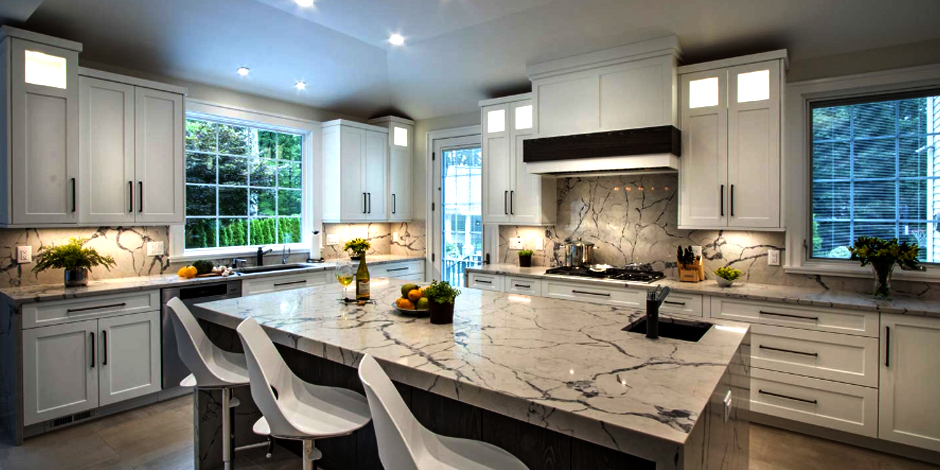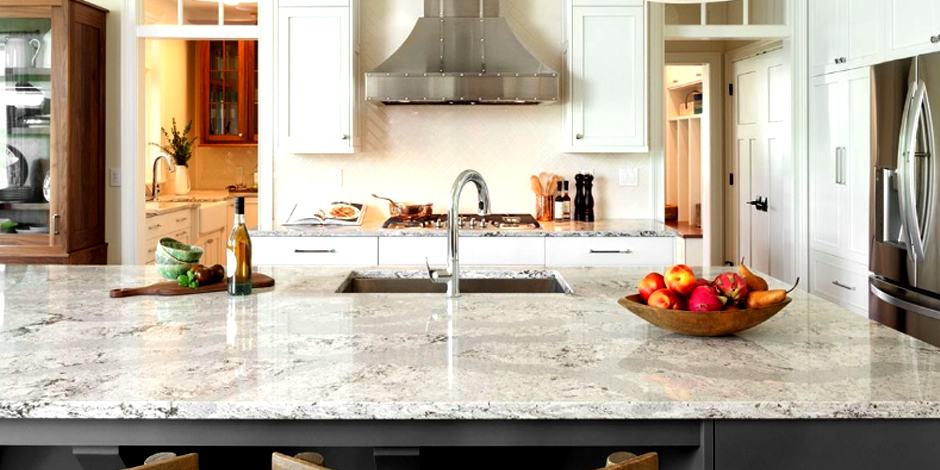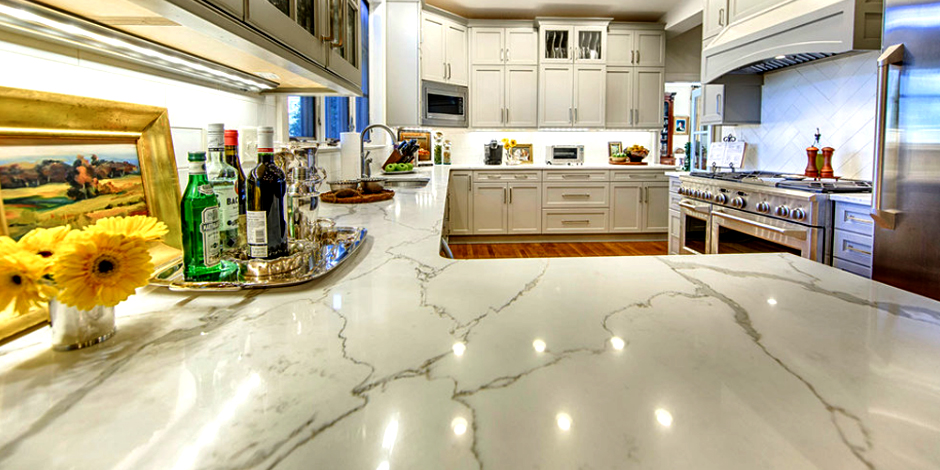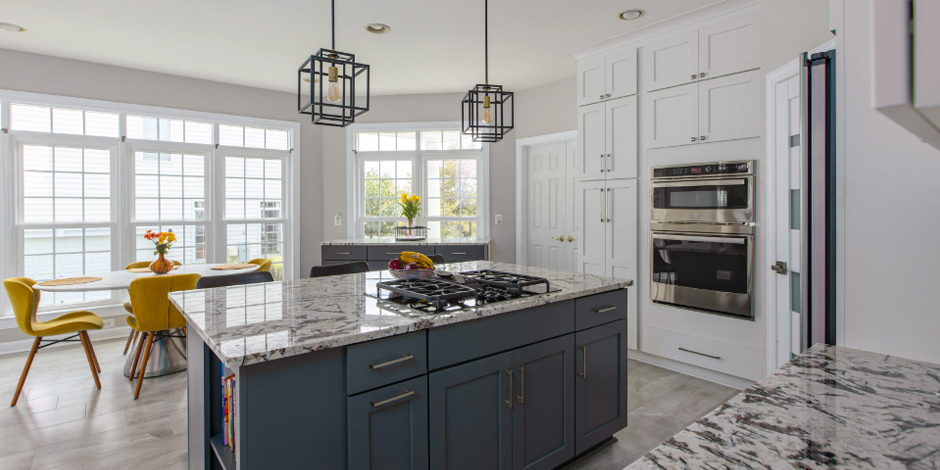Choosing the right material for your kitchen and bathroom countertops can be a challenging task when renovating your home. Two popular options that often spark debates are Granite and Quartz. To determine which material is more cost-effective, various factors such as maintenance, cost, and durability need to be considered. In this article, we will compare granite and quartz countertops to help you make an informed decision about which material to use in your home.
Comparing Quartz and Granite Countertops: What Sets Them Apart?
1. Appearance: Quartz vs Granite’s Countertops : The appearance of quartz and granite’s countertops differs in several ways. Granite countertops are available in various colors, ranging from subtle earthy tones to bright greens and blues. Finding the perfect piece that matches the kitchen’s color scheme may require some searching.
On the other hand, quartz countertops are made with additional pigments, resulting in a broader range of colors and more consistent coloration, making the selection process easier. These differences can impact the cost of quartz kitchen countertops.

2. Price Comparison: Quartz vs Granite’s Countertops
The cost of a kitchen renovation can significantly vary based on the type of countertops you choose. Quartz countertops are man-made and priced by the manufacturer, making them more expensive than granite countertops. On average, quartz kitchen countertops cost around $1.46 to $1.83 per square foot, while granite countertop installation cost ranges from $1.22 to $1.59 per square foot. However, prices can vary depending on factors such as shipping expenses, the difficulty in quarrying, and other unforeseen expenses.
3. Environmental Impact:
The environmental impact is a subject of debate. As quartz is usually obtained locally, it may be considered more eco-friendly. On the other hand, granite has to be sourced from the place where it is mined, which can often be in another country. This can add to the granite countertops cost per square foot.
Moreover, granite is free from synthetic resins, making it a potentially better option for the environment. On the other hand, chemical resins are used in the manufacturing of quartz. The final verdict on the environmental impact of these materials is still up for debate.
4. Composition: Quartz vs Granite Countertops
Quartz countertops are engineered stone countertops, made up of 93% to 95% natural quartz stone powder, along with other minerals and colorants. The remaining component is a resin that binds it together during manufacturing.
In contrast, granite countertops are made entirely from natural granite that is quarried, shaped, and installed. Therefore, the cost of kitchen granite countertops is comparatively lower than that of quartz countertops.

5. DIY Installation: Quartz vs Granite Countertops
Installing both quartz and granite’s countertops requires professional help. Due to their heavy and large nature, special tools and skilled labor are required for precise cuts and installation. DIY installation is not recommended for either material.
6. Comparison of Maintenance and Durability for Quartz and Granite Kitchen Countertops
- Sealing During Installation:
Granite is porous and requires sealing upon installation. Regular maintenance is also necessary, which can increase the overall granite countertops per square foot in the long run. Quartz countertops, on the other hand, don’t require sealing as they use resins during the slab manufacturing process. - Breakage or Cracking:
Granite slabs may be prone to cracking due to natural flaws. In contrast, quartz is homogeneous throughout, so it rarely develops fissures. - Staining:
Quartz countertops are hard and non-porous, making them more resistant to staining than granite. - Microbial Resistance:
Quartz is more resistant to bacterial colonization than granite due to its non-porous and hard nature, which is aided by the resins. - Resistance to Heat:
A properly sealed granite countertop is more resistant to high temperatures than quartz countertops. Granite won’t be immediately damaged by placing a hot pot or pan on it, unlike quartz.






 Content Writing
Content Writing Video Marketing
Video Marketing Graphic Design
Graphic Design Lead Magnet Creation
Lead Magnet Creation Content Marketing
Content Marketing